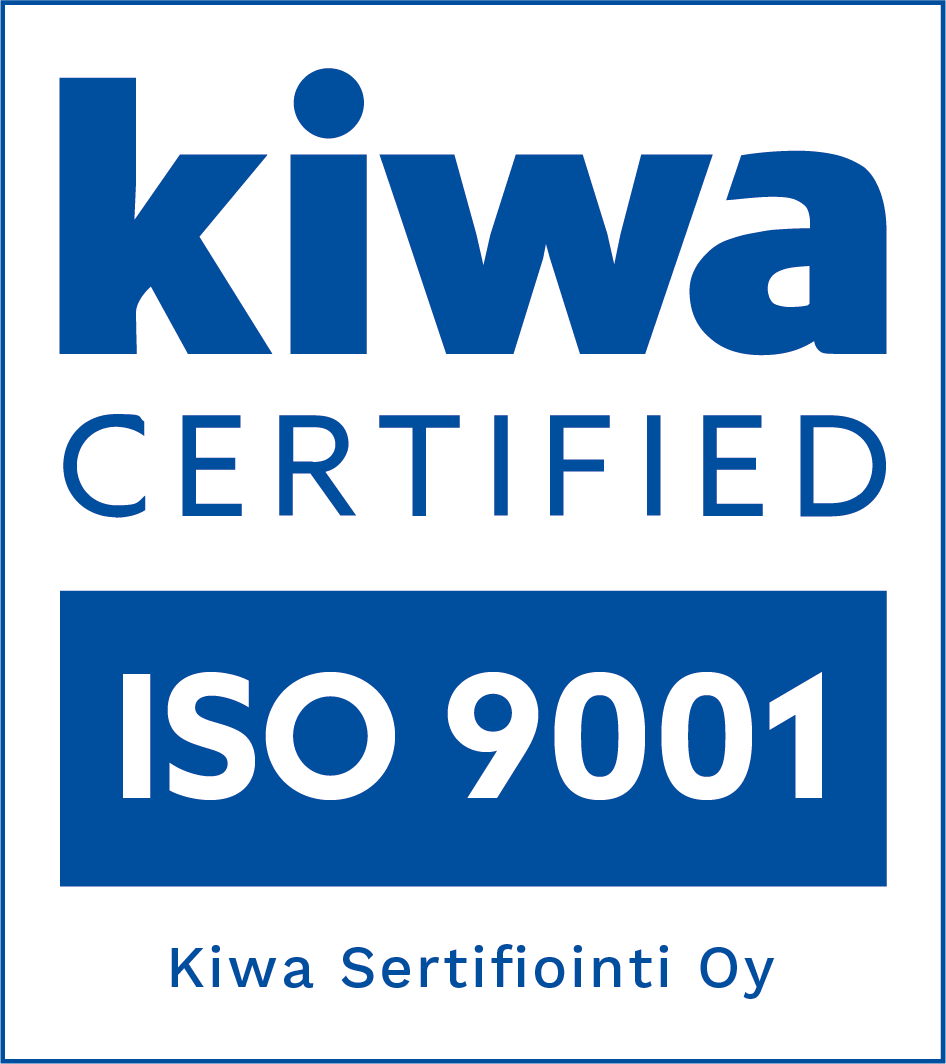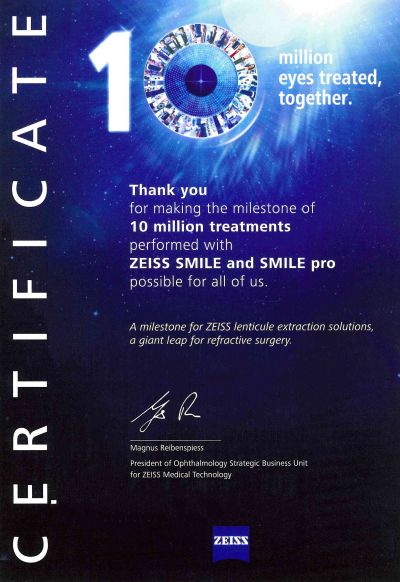
ICL surgery
ICL as an alternative to laser surgery
ICL refers to a lens similar to a soft contact lens, which during surgery is placed between the eye's natural lens and the iris. The lens bends (refracts) light on the retina which produces clear vision. The lens adapts completely to the eye and is not noticeable at all. ICL is a good option if the refractive error is large or the cornea is particularly thin.
In excimer laser surgery for severe nearsightedness the optical zone is quite small compared to the optical zone achieved by ICL lens. That is why ICL offers the best possible quality of vision for severe nearsightedness.
ICL lenses are manufactured by the Swiss pharmaceutical company STAAR, and the lenses made of patented collamer material. Collamer is a tissue-friendly, very soft and light material.
From Pre-examination to ICL surgery
Before ICL surgery a preliminary eye examination at Eira Hospital is performed. In the examination the suitability for ICL surgery is assessed.
In the preliminary examination, the refractive power of the eye, intraocular pressure, curvature of the cornea and the condition of the fundus are examined and the dimensions of the eye are measured.
If ICL surgery is deemed possible for you, we will book you a paid appointment with the operating eye surgeon. The surgeon will analyze the preliminary examinations made by the hospital optician. Afterwards you will be ordered a made-to-measure ICL from the manufacturer. When the delivery time of the ICL is confirmed, the date of the surgery is agreed with the eye surgeon.
Next available appointments
Stages of ICL surgery
The surgery is performed a few weeks after the preliminary examination. It is done under local anesthesia and takes about half an hour.
- A 3 mm incision is made in the eye, which will close without stitches.
- The ICL is installed between the lens and the iris.
- You can go home approximately two hours after the operation.
Follow-up examinations are scheduled individually.
Risks of ICL surgery
Complications of ICL surgeries can be intraocular inflammation, increased intraocular pressure or the development of cataracts. These side effects are rare, but always possible. That is why it is necessary to check your eyes regularly. After ICL surgery, you will be on sick leave for two weeks, and you will need to apply antibiotic eye drops in the operated eye for two weeks.
A popular method backed by years of experience
ICL has been in use worldwide since 1993, when the first ICLs were fitted to people. Since then, ICL has already been installed on tens of thousands and the number is growing steadily.
The ICL eye surgeons at Eira Hospital have completed the international qualifications required for ICL surgeries, bringing ICL surgeries within everyone's reach.
Specialists
Price list
Optician's Pre-examination
Explore the serviceinc surgeon's evaluation
- Kukkonen Ilona, Optician
- Meriluoto Ulla, Optician, Occupational Optometrist
- Rusila Ella, Optician
- Valonen Emilia, Optician
- Ylinen Kirsi, Optician
ICL-leikkaus
Explore the service- Kukkonen Kirsi-Tiina, Specialist in ophthamology, Ophthalmic surgeon
- Linder Matts, Specialist in ophthamology, Ophthalmic surgeon
Follow-ups
Price estimate 160 € - 190 €
A clinic fee of 32,50 € will be added to the price of the appointment. The Kanta fee is 3,50 € and is charged for all visits where information is saved to the My Kanta Pages, except for free consultations. Specialist-specific prices can be found in the specialist’s profile.
-
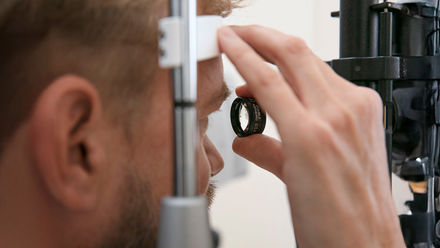 ICL surgery
ICL surgeryICL surgery (implantable collamer lens) is an alternative to laser surgery, especially for correcting severe nearsightedness.
-
 Refractive lens exchange
Refractive lens exchangeGet rid of your progressive glasses with a refractive lens exchange! The refractive lens exchange is sometimes called a presbyopia surgery as it corrects near vision. But in addition to presbyopia, the refractive lens exchange also corrects distance vision and any astigmatism.
-
 Cataract surgery
Cataract surgeryDo glasses no longer help? Does it feel like your vision is blurry despite having recently received new glasses? Have the ophthalmologist specialising in cataracts excaminate whether cataract surgery could be for you. Cataracts can be removed, even before your vision has deteriorated markedly. Make an appointment with one of our experienced ophthalmologists.
-
 Ophthalmologist
OphthalmologistIf you have problems with your vision or your eye looks different, you should consult an ophthalmologist. The ophthalmologist diagnosis and treats eye diseases and can examinate errors of refraction and have them corrected.
-
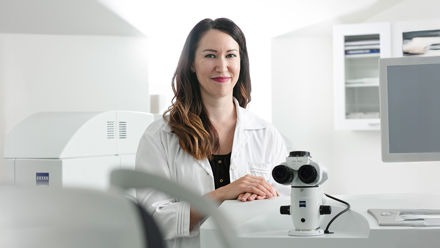 Optician's pre-examination
Optician's pre-examinationConsult the hospital optician and find out if you can correct your refractive error with laser vision correction or refractive lens exchange. During the pre-examination, your eyes are photographed and measured by the hospital optician using various instruments in order to work out which method is most appropriate for your eyes.
-
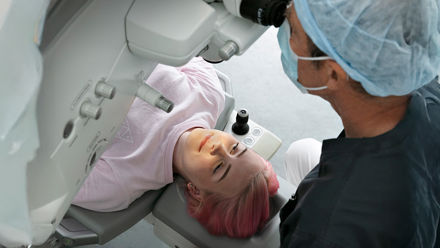 SMILE laser vision correction
SMILE laser vision correctionThanks to the latest SMILE technology, the eye's refractive error can be corrected without the traditional corneal flap. This keeps the surface layer of the eye more intact and reduces the risk of dry eyes. Studies show that the treatment results of SMILE surgeries are excellent. Here in Eira we are using the latest laser equipment Zeiss VisuMax 800.





